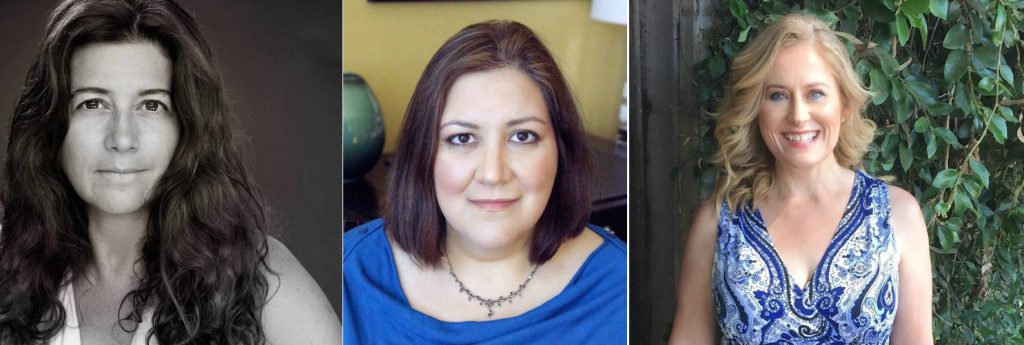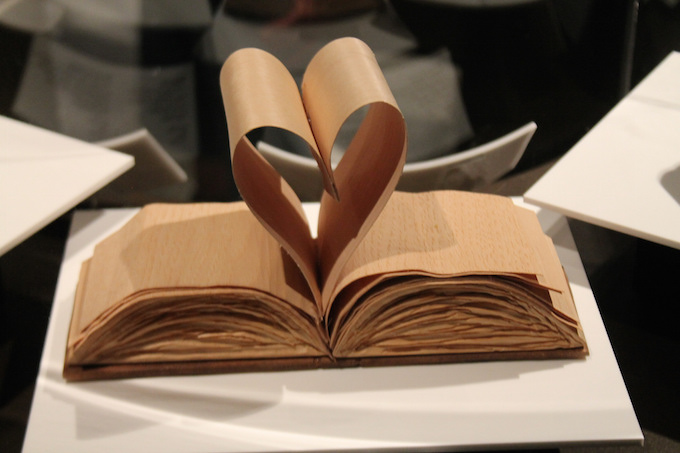By Laurelin Paige, CD Reiss, and Vanessa Fewings
In celebration of Valentine’s Day, three notable romance authors interview each other about the the art of storytelling and share their thoughts on the popular genre. Laurelin Paige is the New York Times Bestselling Author of Chandler, CD Reiss is the New York Times Bestselling Author of Marriage Games and Separation Games, and Vanessa Fewings is the USA Today Bestselling Author of Enthrall Secrets.
They will be be discussing these topics and more, for the How to Write Romance: A Special Valentine’s Day Panel at the Last Bookstore in Los Angeles tomorrow, Monday February 13th, at 7:30 PM. Click here to RSVP.

LAURELIN PAIGE: What’s a common misconception about your career as a romance writer?
VANESSA FEWINGS: I find a common misconception is that authors are simply churning out similar sex scenes. Romance authors are passionate about the written word, and that leads them to inject originality into each intimate encounter.
Every character and every couple brings different elements into the passionate scenes. These are delicately crafted narratives we’ve created with character arcs to ensure a moving experience. We’re dedicated to telling stories that will stay with our readers long after they’ve finished the book.
LAURELIN PAIGE: What do you enjoy most about the indie romance community?
VANESSA FEWINGS: The indie romance community has a great bond between readers and authors. There’s a real passion for our genre. This dynamic network is also very welcoming and nurturing to new writers. When indie authors strike deals with top publishers, they bring this platform with them, proving this world has an extraordinary influence on this ever-evolving market.
What makes the romance community such a fun and vibrant one?
CD REISS: I used to write mysteries (you can check out my Laura Carnegie Mysteries) and I picked up a few fans. I thought I really had something going there. But when I started writing romance I discovered what real fandom was. I never met a group of people more passionate about their genre.
I think the reason is that romance touches the heart instead of the mind. When you reach readers who want you to open them up and break their heart, you’re reaching people who prioritize love and understanding. People who are willing to reach out and create connections with not just characters and situations, but people who want to connect with each other deeply and who prioritize relationships. So they get together and share, have fun, and root for each other.
VANESSA FEWINGS: What do you see for the future of the romance genre?
CD REISS: The future of romance is much like the past. The genre has legs. It’s been around for a long time and isn’t going anywhere. But sub-genres will change. In the time I’ve been writing romance I’ve seen the dominance of kinky billionaires turn into chart-topping New Adult. Recently we’ve seen a massive resurgence of Romantic Comedy. What’s next? I don’t know, but I assure you it will be unexpected.
Why do you think romance readers have responded so positively to self-published authors?
LAURELIN PAIGE: It’s like going to a restaurant. With literary fiction, you’re getting the tasting menu. It’s different and surprising every time. And if you’re feeling adventurous, that’s exactly what you want. Romance, though, is comfort food. It’s your mom’s spaghetti. It’s the ice cream after a long day. It’s the familiarity that warms your heart, every single time. And if I’m involved there’s going to be a lot of sex and psychological examination as well.
CD REISS: How do you think romance stacks up against literary fiction?
LAURELIN PAIGE: There are a number of reasons — speed and price being two key factors, but I think the most unusual aspect of this industry is the connection between readers and authors. In traditional publishing, there’s a large remove between who writes and who reads — and who, for that matter, determines what’s available. In indie publishing, readers and authors know each other. Social media is king. And anyone can be anything. Readers, writers, bloggers, and publicists all take turns doing those things for one another. Because of the close-knit feeling, it’s become much more of a community than an industry.


